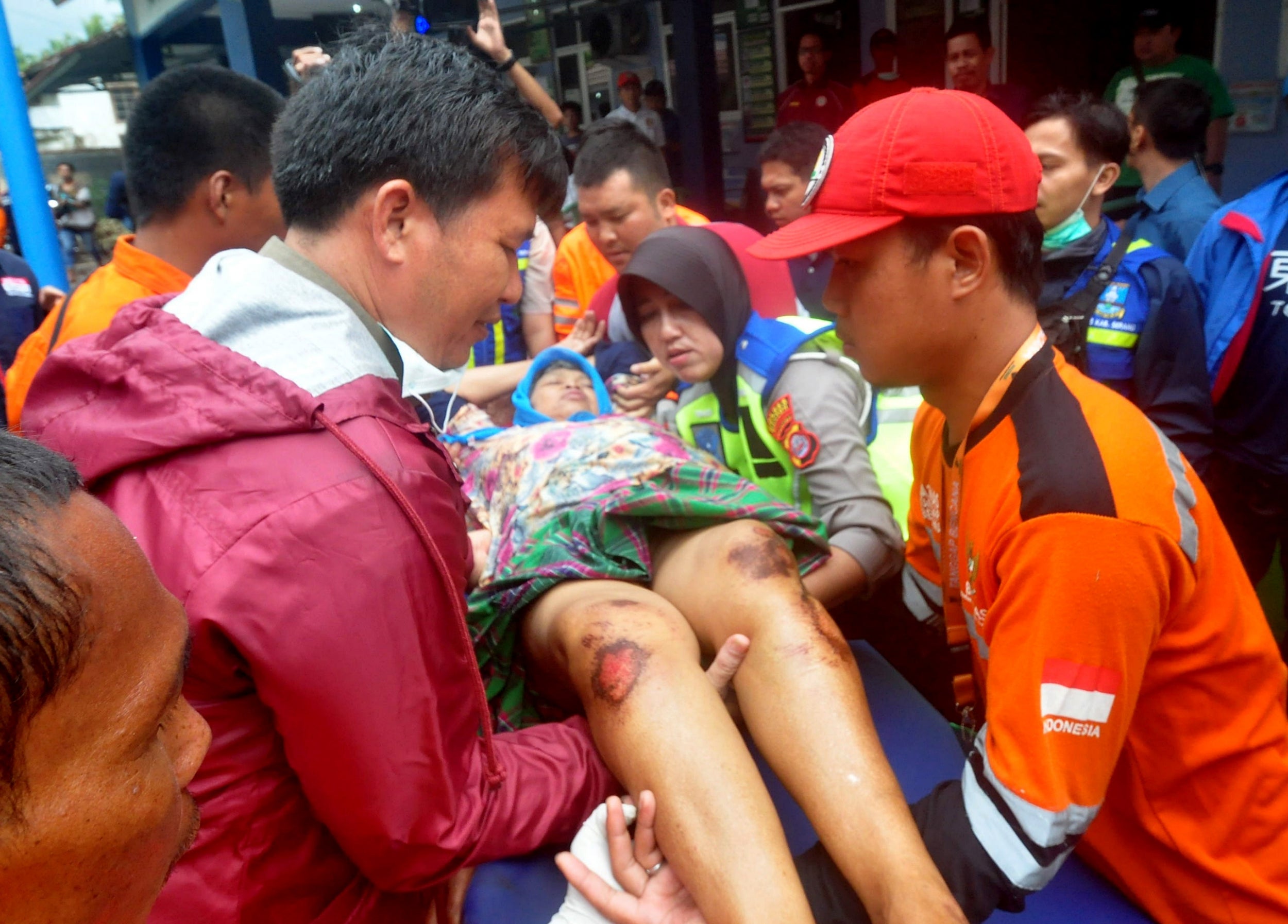Indonesia tsunami: Death toll rises to 222 after devastating tidal wave triggered by volcano eruption
At least 843 people are injured and 28 others missing
At least 222 people have now been confirmed dead after a massive tsunami smashed into coastal towns and resorts in Indonesia.
Hundreds of buildings were destroyed, roads ripped up and cars washed away when the giant waves hit without apparent warning at 9.27pm local time on Saturday.
Thousands of residents and tourists managed to flee to higher ground – but government officials said on Sunday they expected the death toll to rise significantly.
At least 27 people are still missing. Another 843 are injured with many in critical condition.
The islands of Java and Sumatra were both simultaneously hit as water surged inland from the Sunda Strait which divides them.
It is thought an undersea landslide from the notorious Anak Krakatau volcano caused the surge.
Video footage posted online showed the moment the tsunami smashed into beaches and residential districts in the popular tourist area of Pandeglang on Java island.
In one harrowing clip, the tsunami is seen crashing, without apparent warning, through a beach tent where the popular Indonesian rock band Seventeen are performing. Both fans and members of the group appear to be swept away.
Singer Riefian Fajarsyah later confirmed that the group’s bassist and road manager had died. He said three other band members and his own wife remained missing.

As an international rescue operation swung into action on Sunday, efforts were continually hampered by blocked roads and fears of a second tsunami.
President Joko Widodo expressed his sorrow for the victims but urged people to be patient.
In a post on Twitter, he said he had “ordered all relevant government agencies to immediately take emergency response steps, find victims and care for the injured”.
He told both residents and tourists to stay away from beaches around the Sunda Strait with a high-tide warning now set to remain in place until 25 December.
Speaking to the BBC, Kathy Mueller, a Red Cross official, said: “There is debris littering the ground, crushed cars, crushed motorcycles, we’re seeing buildings that are collapsed.”
Of the current death toll, officials said more than 160 were killed in Pandeglang. Another 48 have been reported dead in South Lampung on Sumatra. Fatalities were also reported in the districts of Serang and Tanggamus.

Eyewitness Oystein Lund Andersen, a Norwegian tourist, wrote on Facebook: “I had to run, as the wave passed the beach and landed 15 to 20 metres inland.
“Next wave entered the hotel area where I was staying and downed cars on the road behind it. Managed to evacuate with my family to higher ground [through] forest paths and villages, where we were taken care of by locals.”
It is thought an eruption from Anak Krakatau caused the landslide which led to the water surge. It has been estimated it blew 24 minutes before the waves hit land.
Coastal residents reported not seeing or feeling any warning signs – such as receding water or earth tremors – before waves of two to three metres washed ashore, according to Indonesia media.
Authorities said warning sirens had gone off in some areas.

In Europe, meanwhile, Pope Francis offered prayers for the dead, missing and homeless. The pontiff told pilgrims in St Peter’s Square on Sunday that his thoughts were with the people “struck by violent natural calamities”.
Join our commenting forum
Join thought-provoking conversations, follow other Independent readers and see their replies
Comments
Bookmark popover
Removed from bookmarks